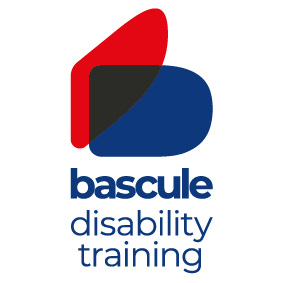Owning a partner’s disability blunders

We all know how important reputation is to business. Which is why we do our utmost to maintain it. When it comes to accessibility, we celebrate our benchmarks, and the milestones we meet. At Bascule, we encourage companies to shout about their achievements and dedication to inclusivity, as it’s important that people know about a brand’s ethos- especially if a company is trying to win the trust and custom of people with disabilities.
But reputation is fragile and can be tarnished quickly, not only by the business itself, but by the organisations it chooses to associate with. In some cases, an organisation can be forced to own the mistakes of those it associates with, as Barclays recently discovered in a story that caused both outrage and confusion.
Now, Barclays is often known for its commitment to inclusion efforts. It has a strong disability inclusion strategy and robust EDI policies; it is even a proud ‘Disability Confident Leader’. However, the bank recently found itself at the centre of a PR storm, not because of its own actions, but those of Ipsos, the third-party market research company it chose to work alongside.
Barclays was reviewing its own customer service and appointed Ipsos to assign mystery shoppers, and, (with good intentions), it specifically opted to assess its service for hearing and visually impaired customers. However, instead of engaging individuals with sensory disabilities for this work, Ipsos made it clear that non-disabled mystery shoppers could pretend to have visual/ hearing impairments! Immediately, cringeworthy Mr Bean-esque scenes, and poor taste impressions spring to mind. It wasn’t long before this offer quickly backfired on a grand scale and attracted the attention of virtually every national news outlet in the UK.
Ouch.
What was clearly an external partner’s epic blunder quickly became Barclays’ problem to own, as every single national news platform framed the goof as ‘Barclays’’ – whilst Ipsos’ quietly and shamefully hung its head in the background.
Barclays learnt a quick lesson the hard way - that third-party failures can and will reflect on the businesses they represent.
What can be learnt from this? Well, companies must ensure that the partners they appoint share their commitment to inclusivity and ethical practices, especially if they are engaging with the general public. Without this alignment, the risk of reputational harm grows.
Ipsos’s inability undermined Barclays’ efforts to be inclusive and damaged its credibility, even though the bank played no real role in the misstep.
In order to avoid this, maybe we should follow the path of sustainable practice companies take when trying to achieve Net Zero status. Most UK companies pursuing Net Zero work only with third parties with similar practices and equally green ambitions, and in the cases where they are working with companies that are not up to standard, they encourage or assist them in improving. If we vet and monitor the practices of external collaborators, only then can we be certain their actions align with the company’s values.
After all, we should collaborate with those with similar values, to promote what we stand for. And the public won’t always distinguish between your mistake and someone else’s—they’ll just remember the name in the headline…
CHRIS JAY, MANAGING DIRECTOR, BASCULE DISABILITY TRAINING



